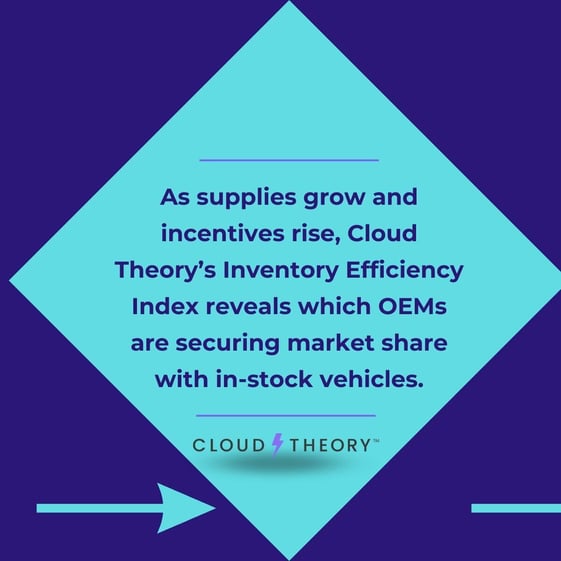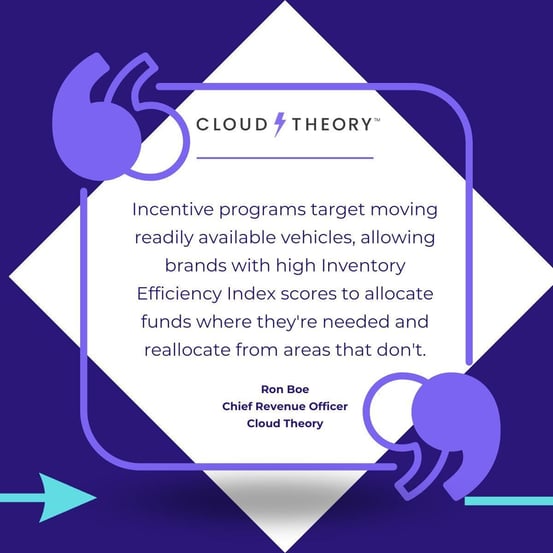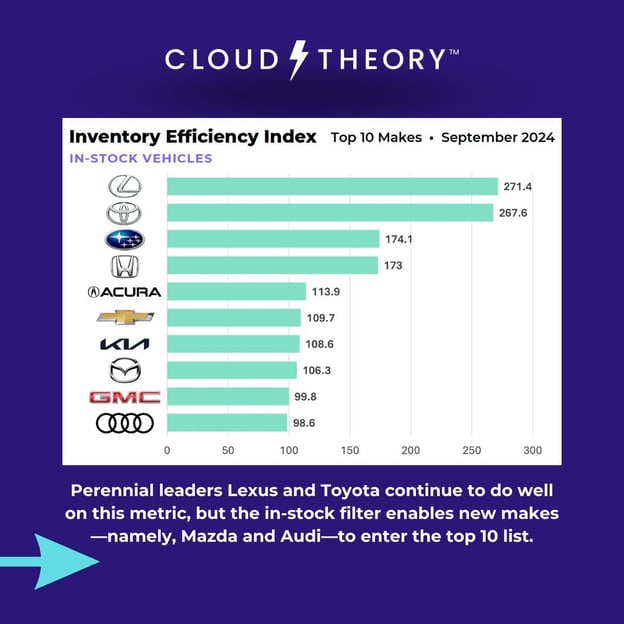A Real-Life Example: Horizon Data Indicates that the GMC Sierra needs more Support to Remain Competitive Based on the Current Automotive Market
In Cloud Theory’s experience, OEMs often make incentive and marketing allocation decisions based on data that is either reliant on their own information or outdated. Sometimes both. When we talk to retail or media planning groups, Cloud Theory finds that these groups use internal factors such as sales goals, dealer reporting, and days’ supply to determine what gets supported and what doesn’t.
Relying on a myopic view of the automotive market without considering the real-time competitive context is like betting on a horse race by only looking at one colt’s training times. Decision-makers need to instead take all competitors’ movements and current situations into account to understand and properly act upon current automotive marketing trends and dynamics and do so across all geographies in real-time.
Getting access to such detailed and timely competitive insights is hard enough, but making sense of that information in a way that enables easy decision-making adds another layer of complexity and challenge to the mix. Cloud Theory's Horizon platform, including its proprietary and patent-pending Inventory Efficiency Index (IEI), enables OEMs to quickly gain a deeper understanding of their supply and demand trends relative to competitors. The Horizon platform does so across all geographies in an easy-to-digest visual manner so users can identify and act upon models and in markets that are most in need of help.
GMC Sierra – An Example Case Study of Automotive Supply and Demand
As an example of these insights and recommended actions, Cloud Theory’s analysis of the Full-Size Truck segment provides a visualized view of 30-day trends depicting the change in top models’ Inventory Share vs. their change in Market Share. The GMC Sierra 1500 stands out as the model most in need of attention—gaining in relative supply (+0.99 points of Inventory Share in the past 30 days vs. the prior period) vs. diminishing in relative demand (-0.48 points of Market Share). Its Inventory Efficiency Index score—which determines if a make or model is selling its inventory more efficiently then average given its position in the automotive marketplace—is therefore declining (down by 11 points month-over-month) and in need of attention.


An Automotive Market View
While it is valuable information to know what model to focus on, OEMs must still determine where to best spend their valuable resources to get the most out of their marketing dollars. To address this challenge, Cloud Theory’s Horizon platform provides a visualization of OEM performance at the regional, state, or DMA level to quickly identify areas of opportunity.
As we saw in the previous view, GMC Sierra 1500 is gaining in relative supply but losing in relative demand across the U.S. In the view below, it is now easy to see that markets such as Boston are contributing to this national dynamic, while a market such as Phoenix is a stronghold that is gaining on both share metrics. When using this tool, it becomes clear where an OEM should allocate (or reallocate) incentive or marketing funds from stronger markets to ones needing a boost in demand.

A Picture is Worth a Thousand Words
As shown above, Cloud Theory's platform enables OEMs to leverage these market insights and make competitively contextualized decisions in real time. By identifying and assessing situations like those faced by GMC, companies can reallocate marketing and incentive resources more effectively and make more accurate decisions based on today’s automotive marketing trends. While this example focuses on the Full-Size Truck segment Market and Inventory Shares, the platform's true value lies in its ability to empower any OEM to make informed decisions across an its entire portfolio of models and across a full range of geographies. Cloud Theory's platform provides the means for all OEMs that can ensure their resources are deployed in the right place at the right time and in the right way.
The Bottom Line: Providing a Game-Changing Solution in the Automotive Market
In the rapidly evolving automotive industry, gaining a competitive edge is crucial for any OEM. Cloud Theory's Horizon platform provides a game-changing solution, allowing OEMs to visually analyze their market positions relative to competitors, identify inefficiencies, and make intelligent decisions regarding resource allocations. As demonstrated through the GMC example, the platform's ability to analyze real-time data at the DMA level opens new avenues for OEMs to focus their efforts in a challenging competitive landscape. By partnering with Cloud Theory, OEMs can leverage actionable insights and transform their business strategies to drive success in an increasingly competitive market.
About Cloud Theory’s Inventory Efficiency Index Scoring
Cloud Theory's patent-pending Inventory Efficiency Index provides a previously unavailable real-time view of market-relevant supply and demand of all makes and models across all geographies. Key decision-makers can use the IEI to confidently allocate valuable marketing and incentive dollars to locations requiring a boost in demand or reallocate vehicles to locations that are moving inventory more efficiently. Cloud Theory's Inventory Efficiency Index assigns scores to vehicle makes based on current active inventory and sales data compared to competitors.
- A score of 100 means that an OEM's demand is in balance with its relative supply in the marketplace.
- A score above 100 indicates that a make or model is selling its inventory more efficiently than average.
- A score below 100 means that there are opportunities to bring demand into better alignment with supply (or vice versa).




